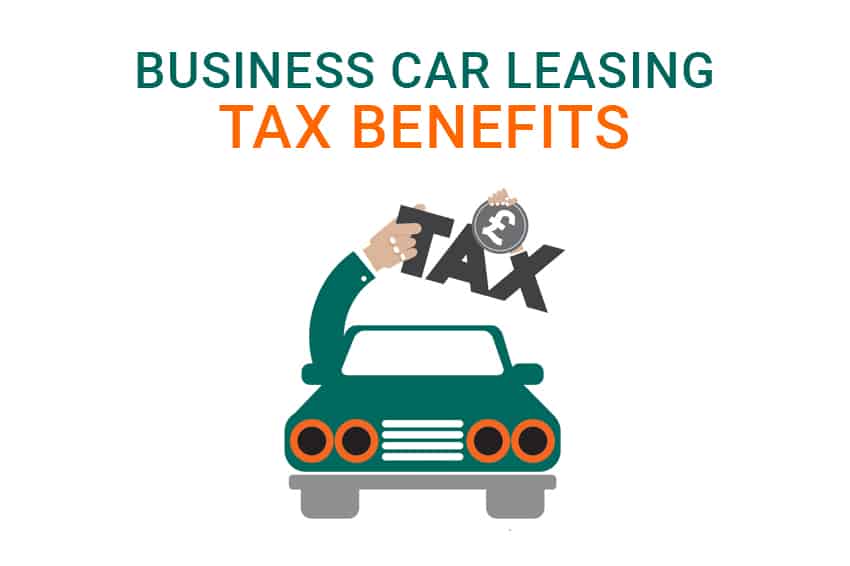What are the tax benefits of leasing a car for your business? Business leasing is one of the most popular ways for business owners to get a new car and it’s a method that has been around for several years.
One of the key reasons that business car leasing is popular is because it has a great number of tax benefits. It’s these benefits that will very often sway businesses to choose business leasing over the other methods that are available to them.
So, what exactly are these incredible tax benefits and is there anything you should be aware of before you make any decisions?
In this article, we look at the implications of business car leasing and the tax benefits and how they apply to you and your business.
What are the tax benefits of leasing a car for a business?
As we have mentioned previously, there are lots of tax benefits of leasing a car for business. Most of these benefits are relevant if you get a vehicle through a Business Contract Lease or Business Contract Hire.
These are the most common forms of business leasing, where you have a vehicle, or a fleet of vehicles, for a set period of time while making fixed monthly payments. At the end of your contract, the vehicles are returned and you have nothing more to pay, subject to mileage and condition restrictions.
Many of the tax benefits apply to Business Contract Hire, so this will be the car leasing option we will talk about in this article.

It’s good for company accounts
Irrespective of the broker or dealership you use, or the vehicle you choose, the biggest advantage to business leasing is that it is tax-efficient, meaning that it’s good for company accounts. This is due to the fact that it doesn’t show up as a liability on your company balance sheet.
Your company balance sheet is important as it’s what other businesses will use to judge whether to give you a credit line.

When you make a major purchase through your business, such as a property or a vehicle, you need to think about how it will impact on your balance sheet.
If you decided to purchase a single vehicle, or a fleet of vehicles for your business then this is something that will show up on your balance sheet as a huge liability.
If you borrow money to buy several vehicles that cost £25,000 each, it would look like you had borrowed a considerable amount and therefore had a large financial sum against your business. It could, therefore, hinder your chances of borrowing more in the future.
However, if you get the vehicle (or vehicles) with a Business Contract Hire agreement then it won’t show as a liability, or an asset, on your company balance sheet. Instead, it is an “off-balance sheet”. This is seen as one of many tax benefits for a business as it means that you can apply for more credit lines and leasing a car isn’t seen as a liability.
Want to find out more about the different finance options available? Download our FREE guide.
You can offset the rental
What about offsetting the rental? Is a business car lease tax deductible? If you have a limited company then you can offset the monthly rental against your end-of-year Corporation Tax. If you’re a sole trader or in a partnership then you can offset the monthly rental payments against your yearly taxation.
Therefore, business leasing can be seen as very tax-efficient.
How much you can offset against the monthly rental depends on the CO2 emissions of the car or cars you are leasing. If the vehicle emits more than 110g/km of CO2 then you can claim 85% back. If it emits less than 110g/km, then you can claim 100% back.
The exception to this is if you have leased a van. If you have then no matter the CO2 emissions of the vehicle, you can always claim 100% of the monthly rental back.
Another advantage is that you can claim back 50% of the initial payment and monthly rentals. This is because, technically, you’re renting the vehicle rather than owning it.

You can only claim 50% back, as HMRC assumes that you use the vehicle for business travel 50% of the time and personal journeys (including your commute to and from the office) for the other 50%. There is, however, one exception and that is if the vehicle is classified as a ‘pool car’.
A pool car is a vehicle driven by multiple employees for business purposes, such as travelling to and from meetings or training days. A pool car is also left on business premises overnight and on weekends. If your vehicle is a pool car then you are able to claim 100% back.
If you are claiming that a vehicle is being kept on-site when not in use then you need to be honest, as this is something HMRC will check up on. If you’re claiming 100% back and you use the vehicle for any personal errands, HRMC will find out.
You can claim back on excess mileage and maintenance agreements
When you get a vehicle with a Business Contract Lease, you will also have agreed on a fixed mileage. If you, or your employees, go over the agreed mileage then you will be subject to an excess mileage charge. You will have been made aware of the charges prior to signing your contract and they can be anything from 1p per mile + VAT to £1 per mile + VAT.
It is partly due to the possibility of additional charges that many people opt for higher mileage. However, it’s not always the best decision.
The excess mileage charge is considered a service charge, meaning you can offset 100% of it against Corporation Tax. You can also claim 100% of the VAT back on your VAT return.
With this being the case, it’s definitely worth thinking about leasing a vehicle with lower mileage and paying the excess mileage charge. It can prove to be more tax-efficient, as long as you budget for the excess mileage.
If you decide to get a maintenance agreement for your vehicle, or fleet, then this is also considered a service charge by HMRC.
A maintenance agreement is an additional monthly fee that covers all service costs for the duration of your contract. This could be especially appealing if you have leased a fleet of vehicles.
If you have a maintenance agreement then, according to UK government rules, you can offset 100% against Corporation Tax and 100% of the VAT. This is the case whether you have a lease or purchase agreement.

What are the tax implications of business car leasing?
One of the things that make business leasing so appealing is the fact that there aren’t many tax implications.
However, there is one tax implication that you should definitely be made aware of before you decide whether or not you want to lease company vehicles with business leasing.
You will have to pay more National Insurance
If you’re a sole trader, your business is a limited company, you’re a Director, or in a Partnership then you will have to pay more in National Insurance.
This is because you’re providing your employees with a benefit and therefore HMRC says you have to pay more in National Insurance for the benefit. This increase in National Insurance isn’t only if you have a company vehicle, it is the case if you get any benefits from your business.
How much you pay in National Insurance depends entirely on the value of the vehicle.
In conclusion, as we have stated, there are huge tax benefits to business leasing. These include:
- The vehicle (or fleet of vehicles) is “off-balance sheet”
- You can also claim back 100% of the charges on the excess mileage fee and the maintenance agreements.
Business leasing is a great option if you’re looking for a vehicle, or vehicles, for your company and feel that these tax benefits are ones that will make a difference.


